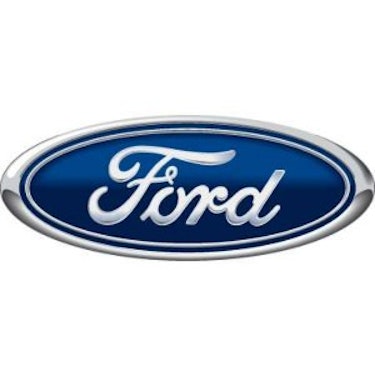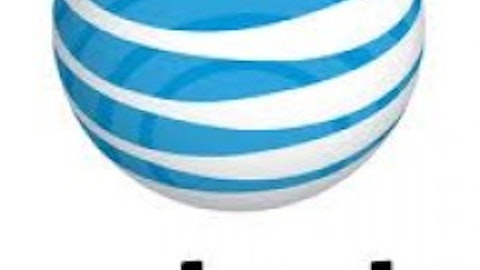
Within a few hours, Toyota Motor Corporation (ADR) (NYSE:TM) challenged that figure stating that Corolla is still on top with sales of 1.16 million vehicles in the previous year. Despite their squabbles for prestige, the Focus and the Corolla are two of the best selling cars in the world right now, and are driving the growth of both companies with impressive sales volume in the U.S and China, the two markets that really matter.
Toyota believes that Polk’s sales figure includes Corolla Sedan (which accounts for more than 90% of total Corolla volume), Axio, Fielder, Rumion, and Wagon and nothing else. But, if Toyota Motor Corporation (ADR) (NYSE:TM) wants to call every car built on a Corolla platform a Corolla, then what happens to everything built on a Golf platform from Volkswagen AG (FRA:VOW) where everything from the Golf/Jetta/Beetle to an Audi A4 to a Skoda Yeti is built on that chassis. A situation that will only become even murkier as Volkswagen implements its MQB process.
It’s all gamesmanship and meaningless ultimately. Say what you want, Ford Motor Company (NYSE:F) only has a few Focus variants and they are universally selling well, helping Ford remain relevant around the world where the F-150 isn’t the best-selling vehicle.
Ford’s current strength is coming from China, where it is one of the fastest growing brands — sales rose 45% year over year in May. Around 300,000 Ford Motor Company (NYSE:F) Focus models were sold there in 2012. Ford is mainly known for its two Focus cars in China, an older-generation or “Classic” Focus and the newer one that is sold globally. In the U.S., sales of the Focus were 245,992.
American auto companies, such as Ford Motor Company (NYSE:F) and General Motors Company (NYSE:GM) , have capitalized on the on the highly political Senkaku/Diaoyu islands dispute between China and Japan as the Chinese have boycotted purchasing Japanese vehicles while sales of American cars have soared. And for GM, the good news is that its premium brands are beginning to gain traction there. This had been a problem for GM as it was positioned in the budget end of them market.
Although Ford was a late entrant in China compared to General Motors Company (NYSE:GM) and Volkswagen AG (FRA:VOW), it is gaining on the crash in demand for Japanese cars and has been able to increase its market share in the country from 2.5% in Q1 2012 to 3.6% in Q1 2013. Ford Motor Company (NYSE:F) plans to expand in China will accelerate as this deterioration of the relationship between Japan and China will likely permanently alter the shape of the car market. And with the depreciation of the yen now over, currency effects will not further help Toyota, Honda Motor Co Ltd (NYSE:HMC), and Nissan Motor Co., Ltd. (ADR) (OTCMKTS:NSANY). Ford plans to introduce 15 new models by 2015, and should be able to easily reach its goal of doubling its market share to 6% in the next three years.
Meanwhile in the U.S, Ford Motor Company (NYSE:F)’s sales increased an impressive 40% in 2012. Like General Motors Company (NYSE:GM), Ford is losing a lot of money in Europe — where Volkswagen AG (FRA:VOW) has been cleaning up — so the company’s growth is being driven by its home market and China. Any weakness seen in those markets should give investors a lot of pause.
Polk’s top 10 list of best selling cars in 2012 includes three Fords and two Toyota Motor Corporation (ADR) (NYSE:TM). The only truck in Polk’s top 10 ranking was the Ford F-series, which has been America’s best-selling pickup truck for 36 years straight.

However, in the U.S, few cars can compete with Toyota’s Camry which has been the top selling car in the country for 11 consecutive years, ranked fifth by Polk with 729,793 units sold worldwide. To compete with the Camry, Ford Motor Company (NYSE:F) redesigned their midsize sedan “Fusion” last year and to good effect. In the past three months sales were up 26%, but there is still a long way to go in the U.S. as Fusion sold 80,558 units versus 100,830 Camrys.
In 2012, Ford’s income dropped by $300 million to $5.7 billion, or $1.42 per share, from revenue of $134.3 billion which fell $2 billion from 2011. Toyota ended its fiscal year with a profit of $10.22 billion on revenue of $234.3 billion. Bottom line growth was driven by a 26.6% increase in U.S. sales over the very difficult 2011.
Toyota Motor Corporation (ADR) (NYSE:TM)’s share price had, like most of the Nikkei 225, risen sharply since the rally began back in December. Equity markets love quantitative easing, and export monsters like Toyota love cheap currencies. The $50 rally in Toyota — from ~$80 to $130 at the peak — has given back just $10 while the Nikkei has retraced more than 50% of its gain. But with that policy now in reverse and the yen strengthening, and likely holding in this current range, currency market de-leveraging is taking place and the Nikkei has taken a pounding which Toyota has so far mostly ignored.
I like the response by Ford Motor Company (NYSE:F) to the changes in the market as well as their drive towards simplifying their production processes. The Ford One program, while not as comprehensive as VW’s MQB plans, should help it keep costs under control and improve its responsiveness to market changes over the next decade.
At this point, Ford has rallied more than 50% off the bottom of last May and should continue to outperform the S&P 500 for as long as the index keeps rising. Global car sales, however, are beginning to hit a wall, especially in Europe, and we’ll see this slowdown in sales very likely spread to the U.S. before the end of 2013 as the economy struggles with high unemployment, low credit growth and higher taxes on the lower and middle classes. The sharp rise in interest rates that we have seen in response to Japan backing off on Yen debasement is already having an effect on car sales as manufacturers have pushed prices down by 8% of MSRP to keep sales flowing.
U.S. automakers and Toyota Motor Corporation (ADR) (NYSE:TM) have enjoyed a reprieve granted by cheap money and government stimulus but even that has its limits. Their stocks may rise but I would not count Europe and the U.S. as growth drivers. That mantle still falls on India, China, and Southeast Asia. India’s car sales are in a sustained downtrend, Southeast Asia’s inflation pressures have been rising with a rising dollar and the yuan’s isolated strength has pushed China’s competitiveness down far enough to have a meaningful impact on its growth. So, in a world of rising bond yields, it is hard for me to be fundamentally bullish on new car sales in over-leveraged economies.
Of the four major car companies discussed, I like Volkswagen AG (FRA:VOW) best as most of its direct competition in its core market — Europe — are suffering the most and will continue to leverage its massive cash position to drive operational efficiency and technology improvements. Moreover, the ECB has not yet joined the printing party to the same extent as the U.S. and Japan and when that occurs it will keep a lid of the euro and VW’s prices overseas, allowing it to continue driving growth.
Toyota is helped in the U.S. by a mixture of the now lower Yen and the ability of GM to overcome a slow down in sales due to pension obligations. GM’s current profitability can vanish in a heartbeat with a further slow down in fleet sales, likely in an era of government budget cuts. Toyota’s stronger brand and now more competitive prices should help it maintain volume in the U.S. with higher rates.
Ford Motor Company (NYSE:F) has a cleaner balance sheet and is starting from a smaller base than General Motors Company (NYSE:GM) and is not as dependent on fleet sales. Also, I like its plans in Southeast Asia — the new Ranger is a hit in a place where the pickup truck is more important than in the U.S. I also like its positioning in Thailand as the regional distribution hub for its vehicles.
The article Toyota and Ford Battle in the U.S and China originally appeared on Fool.com and is written by Peter Pham.
Peter Pham has no position in any stocks mentioned. The Motley Fool recommends Ford and General Motors Company (NYSE:GM). The Motley Fool owns shares of Ford Motor Company (NYSE:F). Peter is a member of The Motley Fool Blog Network — entries represent the personal opinion of the blogger and are not formally edited.
Copyright © 1995 – 2013 The Motley Fool, LLC. All rights reserved. The Motley Fool has a disclosure policy.




